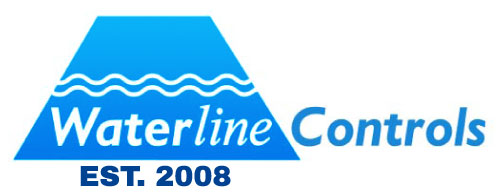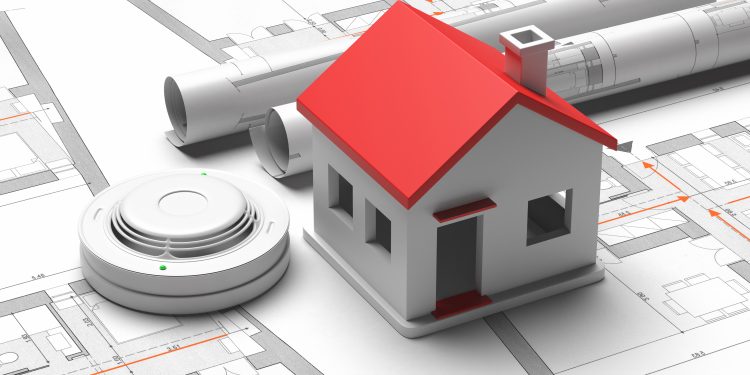Water Management in Intelligent Buildings and IoT
Intelligent buildings are the culmination of technological advancements that enable cost containment, efficiency, sustainability, and occupant satisfaction through system optimization. While solutions for intelligent buildings have traditionally been positioned to promote energy efficiency, as the market matures, vendors are emphasizing broader benefits. One such benefit is the conservation and management of water, which is becoming an increasingly important issue in commercial buildings. Advocates have long struggled to increase widespread investment in water-saving technologies and the adoption of intelligent building solutions.
Sensor technology and Internet of Things (IoT) devices are becoming more prevalent in commercial building management. This intelligent building management technology provides building owners and occupants with real-time data that can be used to drive or automate decisions, resulting in cost savings and resource conservation.
For example, the growing trend of remote, telecommuting office workers can be addressed through occupancy sensors that detect the presence or absence of employees in work areas, ensuring that the building is lit, cooled, or heated only when necessary. According to a recent study, smart technologies can help the average office building save 18% of its energy consumption. 1
Several of these systems can also take into account tenant or office worker feedback. Comfy, a smart workplace phone or computer app, collects user preferences for workplace temperature settings, aggregates the data, and then instructs the building’s smart energy system to adjust temperatures automatically to maintain a comfortable working environment.
Why is Smart Water Management Gaining Traction?
While the primary focus of IoT devices in smart building management has been on energy savings, their ability to save water is gaining traction. Ecova found that 57% of energy, facility, finance, and sustainability managers had invested in water conservation measures in 2016. Water conservation efforts, such as irrigation controls and behavioral change, were viewed as low- or no-cost priorities by the surveyed group. 2
Today’s investments in smart water management are simple to implement and quickly pay for themselves.
By 2025, the water management technology market is expected to reach $2.8 billion.
Following irrigation, the next step is to integrate smart water technologies into facility management, which is the direction in which the industry is headed, according to a Navigant Research report.
Trends in Intelligent Water Management
Global investment in water management technologies and services is expected to double to $2.8 billion by 2025, the report states, as water management becomes a standard component of smart buildings. As corporate sustainability and energy efficiency become more important, vendors of smart building technology are demonstrating more comprehensive tools, including some designed specifically for water conservation and management.
Significant corporations are under increased pressure from shareholders and customers to demonstrate sustainability action. Customers are seizing the opportunity to manage their water consumption through targeted actions that make economic sense, as the bottom line remains the primary driver of business investment today. Three emerging technology areas are water-efficient plumbing, irrigation management, and monitoring software.
Manage Facility Water Use Effectively Using Smart Water Management Technology
Smart water management technology provides the data and tools necessary to manage water use more effectively. The data collected by smart water devices is integrated with building management systems to demonstrate how much water is being used and to identify areas where water can be used more efficiently.
Here are some ways that HydroPoint’s smart water management tools can assist you in reducing water waste:
Integrated dashboards that display real-time water use data assist you in adhering to water restrictions or budgets for outdoor irrigation.
Water leaks, large and small, indoors and outdoors, can be detected and reported 24 hours a day with 24-hour water usage monitoring and reporting. Alerts can be sent to a computer or a mobile device in the event of a leak.
Automated irrigation schedules based on weather or soil moisture data promote plant health and prevent overwatering landscapes, resulting in decreased plant loss, hardscape damage, common area hazards, and stormwater runoff.
Controlling the system remotely via computer or mobile device eliminates the need for site visits and wet checks.
Sustainability, as well as corporate commitment to intelligent buildings, are significant drivers for early movers in the water management market. However, a lack of regulation and a disparity between the true cost of water and its price are two impediments to water conservation and management. Investment in three segments of water management—software and services, water-efficient plumbing, and irrigation management—provides economic and environmental benefits, but adoption rates and scale vary significantly by region and customer sector. Global investment in water management solutions is expected to increase from $2,007.9 million in 2016 to $2,862.3 million in 2025, according to Navigant Research.
This Navigant Research report examines the opportunities and challenges associated with deploying water management technologies and services in intelligent buildings. The study investigates the major market dynamics influencing water management solution adoption at the macro level, as well as by customer sector (building type) and region. Revenue forecasts for the global market are provided through 2025, segmented by customer sector, technology segment, and region. Additionally, the report examines key water management technologies for intelligent buildings, as well as the competitive landscape.
Significant Issues Addressed:
- What is motivating interest in intelligent building water management?
- Which of the following are the primary impediments to investing in intelligent building water management?
- What are the advantages of intelligent building water management?
- Which customer segments stand to gain the most from intelligent building water management?
- Which technology segments in the intelligent building water management market will experience the fastest growth?
- Which water management solutions are gaining the most traction?
Waterline Controls™
Our level sensors and controls aren’t just for use in residential potable water holding tanks; some of the other applications include cooling towers, sump pumps, wastewater, boilers, water storage tanks, and building fire protection water tanks.

